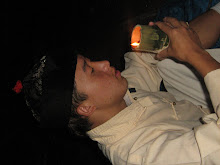Lepchas of yore prepared manuscripts are called ‘Naamtho-Naamthaar’ in Rongaring. The definition of Naamthar can be understood this way- ‘Naam’ means a year and ‘tho’ means registration of records. The word, ‘Naamthaar’ has its origin in ‘Naam’ meaning a year and ‘thaar’ means to cut a bamboo cylinder or wood slantingly, to sharpen and beautify it. The naamthars of the Lepchas fallunder different categories some merely recording of facts while others are literary works but the most important of all – some Naamthars are holy to the lepchas and as such have very high religious value. We do have some naamthars which are but mere translation of the Buddhist texts of the Tibetan lamas into Lepcha language written at the time when the Tibetans entered Nye Mayel Lyang and was trying to convert the Rongkups into Buddhism as they had already installed a Tibetan Buddhist king. The conversion would enhance the administration of the Buddhist king to a large extent. So eager were they to convert the lepchas that they collected and destroyed large volumes of indigenous lepcha Naamthars. Legend has it that it was burned near a Monastery located near Rabdentse (one of the capital of
‘Chhyo Naamtho-Naamthaar Aabong Sam Sa Saknyim’ meaning the Lepcha Manuscripts Study Day is observed by the lepcha people annually. On the day, Naamtho-Naamthaar are displayed on a decorated table or bamboo platform with flowers and fruits. The Lepchas, men and women, boys and girls, sitting together read, listen, and discuss on the Lepcha manuscripts with interest, respect and devotion. ‘Naamtho-Naamthaar; is alive and well in the Lepcha world.
This year (2009) this was observed in Ngassey Kyoung kalimpong on the 01.11.2009.
The Lepcha Naamthaar, can be divided into two main categories and they are:
1. Lepcha manuscripts purely based on the original Lepcha subjects, topics and issues.
2. Lepcha manuscripts purely based on the translation work from Tibetan Buddhist text books into Lepcha.
The Lepchas firmly believe that it was Men Salong, a Lepcha scholar, adventurer and ‘Boongthing’, a great Lepcha priest, who invented the Lepcha alphabets and scripts and compiled the ‘Lazaong’. Lazaong, literally, means a syllabic scheme. ‘Lazaong’ is strictly based on the fundamental principles of the traditional Lepcha language structure and not based upon the Latin Grammar as is the case with numerous other languages of the world. It can also be described as the ‘Power of Words’.
Another original Lepcha manuscript which may be of some interest to you is called ‘Nyung Yung Mun’ or ‘Nyolik Nyoosong Mun’. It deals with the origin of Lepcha ‘Mun’, priestess, and the origin of ‘Chi’, Lepcha fermented beer.
Another diverse subject is ‘Kyon Chhyo’ which deals with Lepcha astrology.
Mother Nature. The Indigenous Lepchas are basically nature lovers and worshippers, therefore, they are in possession of the following books:
a) Chu Rum Faat - Prayers and offerings to Kingtsoomzaongboo i.e.
b) Lyang Rum Faat - Prayers and offerings to mother earth and soil.
c) Tungrong Hlo Rum Faat - Prayers and offerings to
d) Sakyoo Rum Faat - Prayers and offerings to ‘Mayel Kyong’ and the seven immortal Lepcha couples who live in this paradise. It is also a thanks giving ceremony and a cultural festival on prosperity.
e) Muk Zek Ding Rum Faat - Prayers and offerings to Mother Nature. It deals with ecology, environment and surroundings. It also speaks about fishes, reptiles, insects, bees and birds, trees, bushes, shrubs, wild edible vegetables, flowers, fruits and roots etc. that are found in Mayel Lyang.
f) Tungbong Faat - It deals with birth, naming and weaning ceremonies.
g) Nyoo Thing Laom Fron - It deals with burial and death ceremonies.
There are other Lepcha manuscripts based on Lepcha subjects and topics which it is not possible to include in this short article.
Reference: www.indigenouslepcha-tribalassociation.com





Dear,
ReplyDeleteIts good to see a new blog containing Lepcha updates,Thank you very much.
A small suggestion if you could keep background colour bright it will be easy to read for all.
Khamri.
Neema Lepcha
Siliguri
Thanx keep coming back....more updates catching soon....thanx for the suggestions
ReplyDelete